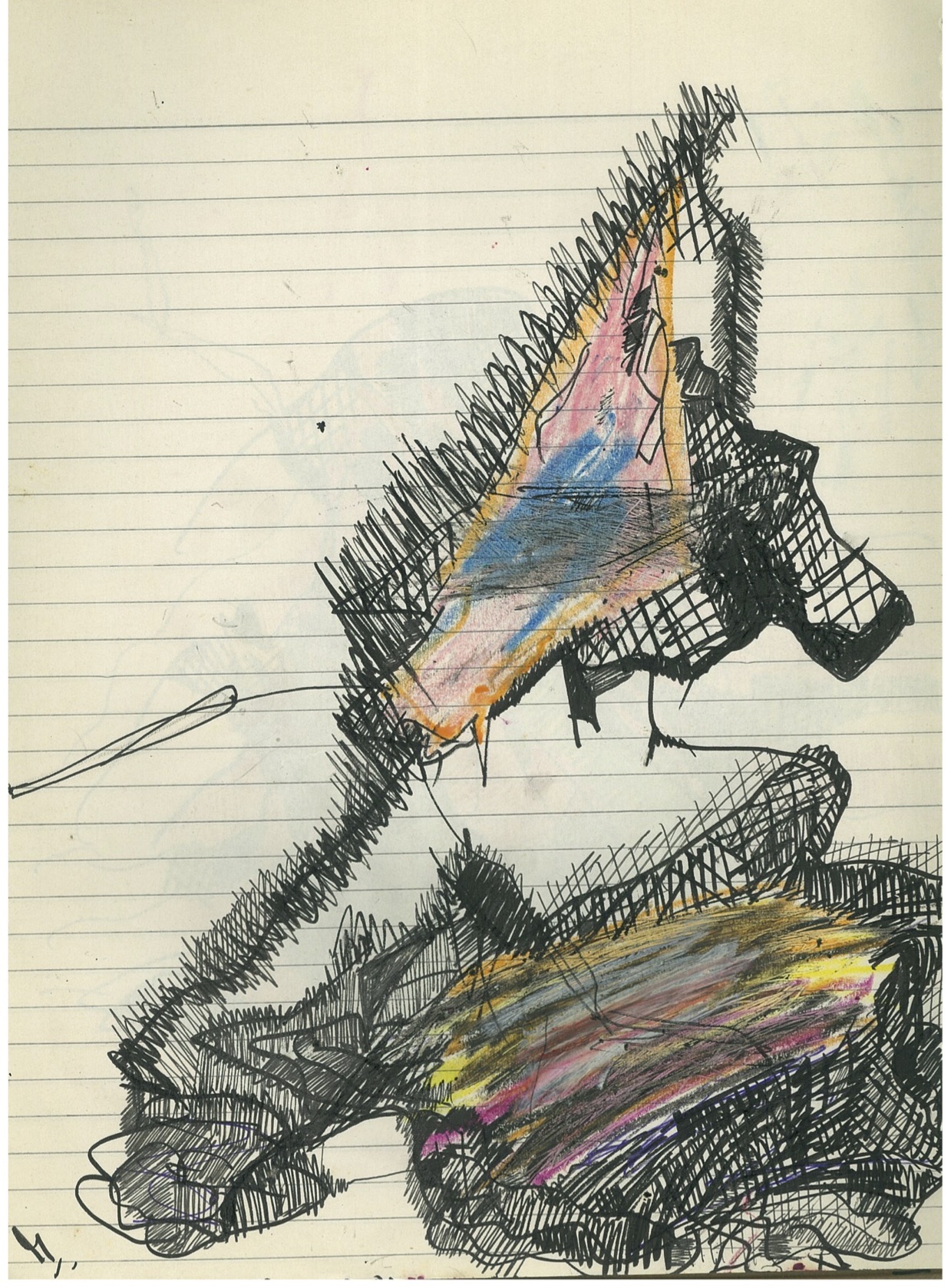
(i)
Red, black, indigo
White scattered
A fistful of stars
Sky
Eye
Blood
(flowing heavy
between my legs)
Blank paper
I am not just in love
with Ajrakh
I covet it
(ii)
Azrak
Sound of blue
in the tongue of conquerors
I feel, familiar,
many ages and a continent away
in Istanbul
Aaj Rakh
‘Leave it for today’
in the tongue of the Rao
wrenching the khatri’s hands
into the salt desert
(iii)
At the Tropic of Cancer
The sun makes a river of the road
The maldhari man on a motor-cycle
clatters past, Ajrakh flying,
towards the sun-washed town
We move away, to Karo Dungar
The jackals still wait for their feed
of flesh, the cry of ‘lo ang’
‘Come, eat my flesh’
From across the white desert
wind lashes at the skin
to the backdrop of faith—
the temple bell ringing to awaken
sleeping gods to pilgrim’s prayers
Part-tourist, part-exile
It’s time to leave, find the way
back to the calls of the city
billboards on the highway
easing gradually into the bazaar
(iv)
Mother calls me Ajrakh-thief
On Diwali or not-on-Diwali
or in anger, looking for something to do
she empties cupboards
finding my hoard—
pieces of Ajrakh
(not one, three or four lengths,
machine printed, no more by hand)
and a saree of Ajrakh, hand printed
with a light gold border
bought in an air-conditioned boutique
(v)
Mamai Dev prophesied,
head resting bloody on a platter.
Now
Black chimneys vomiting fire
Now
Machines
usurp the skill of hands
on sale for foreign tourists
(vi)
You might call it a kerchief
but open my bag
and you will find a piece of the sky
In this burning desert
I cocoon myself
in Ajrakh
Mother laughs and says:
‘That is the smell of Kutch and Sind
coursing through your veins.’
(vii)
What is this craving
called Ajrakh?
(viii)
I reach for the fabric
touching my childhood
The Priest King of Mohen-jo-daro
with trefoil shoulder cloth
staring across 2000 years
(gaze frozen in smudgy
black and white)
from my history textbook
The Priest King’s trefoil shoulder cloth
comes alive, so I can feel it – coarse –
fragment from Fustat, under museum-glass
(ix)
Red, black, indigo
White scattered
A fistful of stars
Ajrakh
Red
Pomegranates
in the far Afghan snow
Red
Dusk melting
under the dancing feet of the bridegroom,
seerakh raised high over his head
Red
At printing time
the dense taste on Ismail bhai’s finger
dipped in mordant alum
Indigo
The colour that was
before blue turned red
in Champaran
Indigo
The Sufi fakir’s
peacock feather broom
oscillating in bandagi
Black
The dust of Maleer
waiting for Marui
Black
The colour of Baba Mekran’s donkey
carrying water for the lost traveller
in the desert
Black
the grains of sand covering
Shah Latif’s body
White
The cracks on my grandmother’s feet
awaiting the rain
White
the salt desert
(x)
Indigo
Odho Jam
in Hothal’s embrace
Red
Hothal’s kerchief soaked in
camel blood
Black
My mother’s Hothal’s hair
floating in the lake at Chakasar
White
My inheritance
Hothal’s courage
(xi)
Ajrakh
Sound of the Jodiya-pawa
rising from the dried oceanbed
of the banni
Calluses on the fingers of the jat
musician, raising the bow
of his surando to the sky
Under the shade of Karo Dungar
a kumbhar shaping clay into notes—
a Bhorindo to play with air
Shah Latif’s wai playing
on the ridges of the Black Hills
(xii)
Ajrakh
open sky
taste of exile
words drying
on a page
(xiii)
Ajrakh—
the red before land was carved
its skin clotted blood

